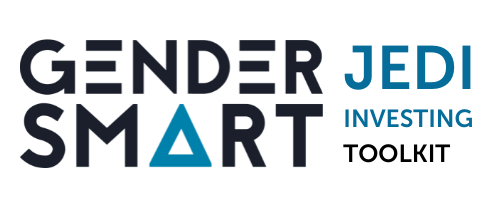Investing for Today, Tomorrow, and Future Generations: A Guide for Indigenous Investors
The purpose of this guide is to help Indigenous institutional investors identify steps that they can take to ensure that the assets entrusted to their care are invested in ways that support their communities today, tomorrow, and for future generations.
Gender-based Analysis Plus (GBA+)
From the Government of Canada: GBA+ is an analytical process used to assess how different women, men and gender diverse people may experience policies, programmes and initiatives.
The Questions LPs Can Ask for Due Diligence on Diversity and Inclusion in VC
From Diversity VC: A list of questions which Limited Partners can use to ask GPs at venture funds during the due diligence process to better understand their approach to diversity and inclusion. The first set of questions is taken from the ILPA guidance, the second has been compiled by Diversity VC in discussions with GPs and LPs in Europe and the US.
Illinois State Treasurer's Office Sustainability Investment Policy Statement
Illinois State Treasurer's Office Sustainability Investment Policy Statement
Integrating Gender Diversity Criteria into an Investment Policy Statement
From Morgan Stanley: A roadmap for integrating investment with impact in an investment policy statement.
van Ameringen Foundation Investment Policy Statement
van Ameringen Foundation Investment Policy Statement
NorthLight Foundation Investment Policy Statement
NorthLight Foundation Investment Policy Statement
Canadian Investor Statement on Diversity & Inclusion
From Responsible Investment Association Canada: Signatory investors encourage Canadian public companies to lead in global efforts to address systemic inequities by advancing diversity and inclusion efforts and enhancing transparency and accountability, as well as challenge their own institutions to advance diversity and inclusion of underrepresented individuals within their organisations.
Investing in Racial Equity: A Primer for College & University Endowments
From The Intentional Endowments Network: This Primer is intended to be a catalyst for conversation and action on racial equity for fiduciaries of university endowments who are looking to learn more about the current state of racial inequity in the U.S. as it relates to the long-term sustainability of the economy; the unique, under appreciated opportunity available to college and university endowments in racial equity investing; and the variety of tools, products, partners and best practices available. University fiduciaries can begin to address racial equity in their roles by taking the actions outlined in this Primer.
Integrating Racial Equity into Total Portfolio Activation
This paper offers a synopsis of the evolution from community development and ESG investing to the emergence of investing explicitly with a racial equity lens, proposes a definition for racial equity investing, and presents emerging opportunities across asset classes for investors. This report is supported by the Nathan Cummings Foundation & Trillium Asset Management.
There is a Strong Business Case for Racial Equity, But Investors Must Look Beyond the Data
From Veris Wealth Partners: Veris Wealth Partners asserts, "[The] data indicates that too many public commitments to racial equity and racial justice amount to impact washing–it is more a marketing tactic than an authentic, action-backed commitment to change. To ensure authenticity we must look beyond public statements and seek action and accountability. We must look to see who is in leadership. Is racial equity evidenced in the C-suite or in the boardroom of these corporations? Is pay equity addressed at all levels of the firm? Unfortunately, not a lot has changed on that front."
The United States Prosperity Index 2021
The Legatum Institute’s United States Prosperity Index provides a comprehensive picture of prosperity for the 50 states of the Union and Washington D.C., as well as the 1,196 counties of 12 selected states: California, Colorado, Florida, Georgia, Iowa, Kentucky, Minnesota, Montana, Nebraska, New York, Oklahoma, and Texas.
Action for Racial Equity
In 2020, Citi and the Citi Foundation announced Action for Racial Equity, a comprehensive set of strategic initiatives that harness the core capabilities of each institution to help close the racial wealth gap in the U.S. The intiative's website provides updates and key statistics.
The Investment Case for Board Diversity: A Review of the Academic and Practitioner Research on the Value of Gender and Racial/Ethnic Board Diversity for Investors
This paper from the Office of the Illinios State Treasurer seeks to examine the wealth of literature on the subject of whether and to what extent gender and racial/ethnic diversity affect the functioning of corporate boards and the performance of the companies they oversee, to provide further insight and render a judgment on the investment case for gender and racial/ethnic diversity on corporate boards. In summary, this paper concludes that the gender and racial/ethnic composition of corporate boards does indeed have a material and relevant impact on company performance and investors.
Social Equity Investing: Righting Institutional Wrongs
From Cambridge Associates: This paper reviews the current state of social equity in the United States, highlight eight core social equity issue areas, and discuss the lessons they've learned in constructing portfolios with these investments. They define social equity investing as investments to promote equal opportunity and access for all, regardless of background, but understand that many investors have different definitions. While investors need to be mindful of risks, the authors believe that investments can be made to promote a social equity impact agenda across the portfolio.
Racial Equity Action Plans: A How-to Manual
Racial Equity Plans are both a process and a product. A successful process will build staff capacity which can be valuable during implementation. A process can also serve to familiarize more staff with the jurisdiction’s racial equity vision and its theory of change. This manual from GARE provides guidance for local governments to develop their own Racial Equity Action Plans after a period of research and information gathering. This manual also provides guidance and tools to conduct this research.
Statistics Canada Definition of "Population group of person"
From Statistics Canada: A definition of "Population group of person." "Population groups" are the groups used on questionnaires which collect data on the visible minority population for Employment Equity purposes. The Employment Equity Act defines visible minorities as "persons, other than Aboriginal peoples, who are non-Caucasian in race or non-white in colour".
Discussion Document for a Pan-Canadian Strategy to Advance Gender Equality
The Discussion Document for a Pan-Canadian Strategy to Advance Gender Equality of the Gender Equality Network of Canada is a culmination of the experiences, stories, expertise, and aspirations of over 150 leaders from across what is commonly known as Canada, nominated by local, federally funded, gender equality projects. The Discussion Document was developed out of three years of dialogue, learning, and knowledge sharing of the Gender Equality Network of Canada and is their collective response to a pandemic of gender-based violence, inequity, and the perpetually operationalized patriarchy which informs, directs, and administers our lives as women and people of marginalized genders.

